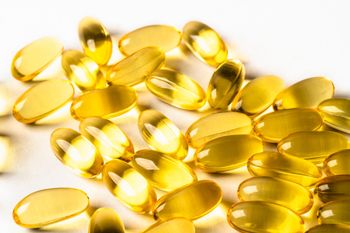
|Slideshows|June 20, 2016
- Nutritional Outlook Vol. 19 No. 7
- Volume 19
- Issue 7
Four New Phosphatidylserine Studies for Memory, Stress, Mood, and ADHD
Author(s)Irfan Qureshi
New research backs phosphatidylserine’s role in memory, stress, and mood.
Advertisement
Articles in this issue
over 9 years ago
How Should We Market the Cranberry?over 9 years ago
Drugs vs. Dietary Supplements: Head-to-Head Scienceover 9 years ago
Children’s Dietary Supplementsover 9 years ago
Protecting the Fellows: Dietary Supplements for Prostate Healthover 9 years ago
Pet Health Supplements: Paw-Portunity Knocksover 9 years ago
2016 Omega-3 Science Updateover 9 years ago
AREDS2 Trial: Omega-3s Don’t Benefit Cognitive Health?over 9 years ago
Dietary Supplements: Made in the USA?Newsletter
From ingredient science to consumer trends, get the intel you need to stay competitive in the nutrition space—subscribe now to Nutritional Outlook.
Advertisement
Advertisement
Advertisement
Trending on Nutritional Outlook - Supplement, Food & Beverage Manufacturing Trends
1
How GC Rieber VivoMega is adapting fish and algal omega-3 production to a changing market
2
Gluten labeling under review: GFCO on FDA’s Request for Information
3
The role of B6, B12, and folate in one-carbon metabolism and SAMe synthesis
4
GFCO on gluten-free oats, consumer choice, and third-party certification
5




